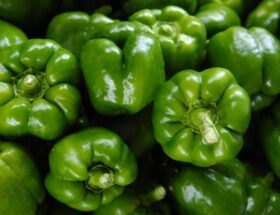Welcome back to GertieBlu, where we explore the intricate world of health, nutrition, and wellness! Today, we’re diving into a juicy debate that’s been squeezing the minds of health enthusiasts for years: Oranges vs. Orange Juice. Is one truly better than the other? Let’s peel back the layers and find out.
The Whole Orange: Nature’s Package
Nutrient Profile: A whole orange is a powerhouse of essential nutrients. It’s packed with vitamin C, fiber, potassium, and various antioxidants. These nutrients play a crucial role in boosting the immune system, improving skin health, and maintaining overall body functions.
Fiber Content: One of the significant advantages of eating a whole orange is its fiber content. An average orange contains about 3 grams of dietary fiber, which aids in digestion, helps maintain healthy blood sugar levels, and keeps you feeling full longer. Fiber also supports heart health by helping to lower cholesterol levels.
Antioxidants: Whole oranges are rich in antioxidants like flavonoids and carotenoids. These compounds help combat oxidative stress, reduce inflammation, and may lower the risk of chronic diseases such as heart disease and cancer.
Caloric Density: Whole oranges are relatively low in calories. A medium-sized orange typically contains around 60-80 calories, making it a healthy snack option for weight management.
Orange Juice: Convenience in a Glass
Nutrient Concentration: Orange juice, especially when freshly squeezed, retains a significant amount of vitamin C and other nutrients found in whole oranges. A typical glass of orange juice can provide more than 100% of the recommended daily intake of vitamin C.
No Fiber: One of the primary downsides of orange juice is the lack of fiber. During the juicing process, the pulp is often removed, stripping away the beneficial dietary fiber. This can lead to quicker spikes in blood sugar levels compared to eating whole oranges.
Added Sugars: Many commercially available orange juices contain added sugars and preservatives. These added sugars can contribute to increased calorie intake and potentially lead to weight gain and other health issues. Always check the label for 100% pure orange juice with no added sugars.
Caloric Density: A glass of orange juice (about 8 ounces) typically contains around 110-120 calories. While this is slightly higher than a whole orange, it’s important to note the lack of fiber, which can affect how the body metabolizes these calories.

Comparing the Benefits
Satiety: Whole oranges, with their high fiber content, are more likely to keep you feeling full and satisfied longer than orange juice. This can help with portion control and prevent overeating.
Blood Sugar Control: The fiber in whole oranges helps slow down the absorption of sugar, leading to more stable blood sugar levels. In contrast, the quick absorption of sugar from orange juice can cause rapid spikes and crashes in blood sugar.
Hydration: Orange juice can be a good source of hydration and quick energy, especially after a workout. However, be mindful of the sugar content and portion sizes.
Convenience: Orange juice is undoubtedly more convenient for those on the go. It’s easy to grab a bottle and drink on the way to work or after a workout. Whole oranges, while portable, require a bit more effort to peel and eat.
The Verdict
So, which is better: oranges or orange juice? It ultimately depends on your health goals and lifestyle. For those focused on weight management, blood sugar control, and getting the most out of their fiber intake, whole oranges are the clear winner. They provide a balanced package of nutrients, fiber, and antioxidants that support overall health.
However, if convenience and quick energy are your primary concerns, especially after physical activity, a glass of orange juice can be a good option—just be sure to choose 100% pure juice with no added sugars.
In the end, both whole oranges and orange juice can have a place in a healthy diet. The key is to consume them mindfully, considering their different nutritional profiles and how they fit into your overall dietary needs.
Thanks for joining us on this juicy exploration! Stay tuned to GertieBlu for more insightful health and wellness discussions. Remember, the best choices are the ones that suit your lifestyle and keep you feeling your best.
Stay healthy and happy!
GertieBlu









